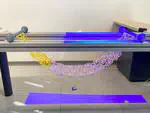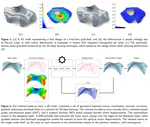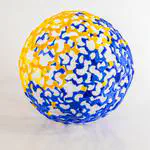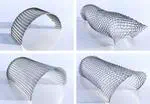Digital Fabrication
The growing popularity of low-cost cameras and data-driven autonomous robotics have made large-scale imaging increasingly popular in environmental monitoring. Ecological assessments deduced from visual data have, until now, been reserved for direct observation by scientists, but most of the time the massive new stream of information cannot be processed visually. The Visual Computing Lab researches and develops IT tools based on computer vision, artificial intelligence and geometry processing of 3D data aimed at the ecological analysis of visual data.
This research activity led to the development of the AI-powered open-source software for analysing coral reefs TagLab. TagLab combines advanced automatic recognition and measurement tools in a friendly graphical user interface to efficiently study demographic changes, spatial dynamics, and the health of coral reef communities by leveraging visual data. By reducing the time required for ecological post-processing of coral reef images, TagLab allows researchers to process increasingly larger volumes of data without increasing the time needed for the person and ultimately facilitates a greater ability to understand and predict changes futures in coral reef ecosystems.
Taglab has been adopted by many marine science research institutions, including the Scripps Institution of Oceanography (University of California, San Diego), the Australian Institute of Marine Science (AIMS), and the Marine Science Institute (University of California, Santa Barbara).
Thanks to our experience and expertise in this field, we are involved in many research projects such as the National Research Program in Antartide (PNRA2018), the PRIN EUPHROSYNE, and the 2023-2025 joint research collaborations funded by MAECI.
Selected papers:
- Field-aligned mesh joinery
- Elastic textures for additive fabrication
- FlexMolds: automatic design of flexible shells for molding
- FlexMaps: Computational Design of Flat Flexible Shells for Shaping 3D Objects
- Volume-aware design of flexible molds
- Optimizing Object Decomposition to Reduce Visual Artifacts in 3D Printing











